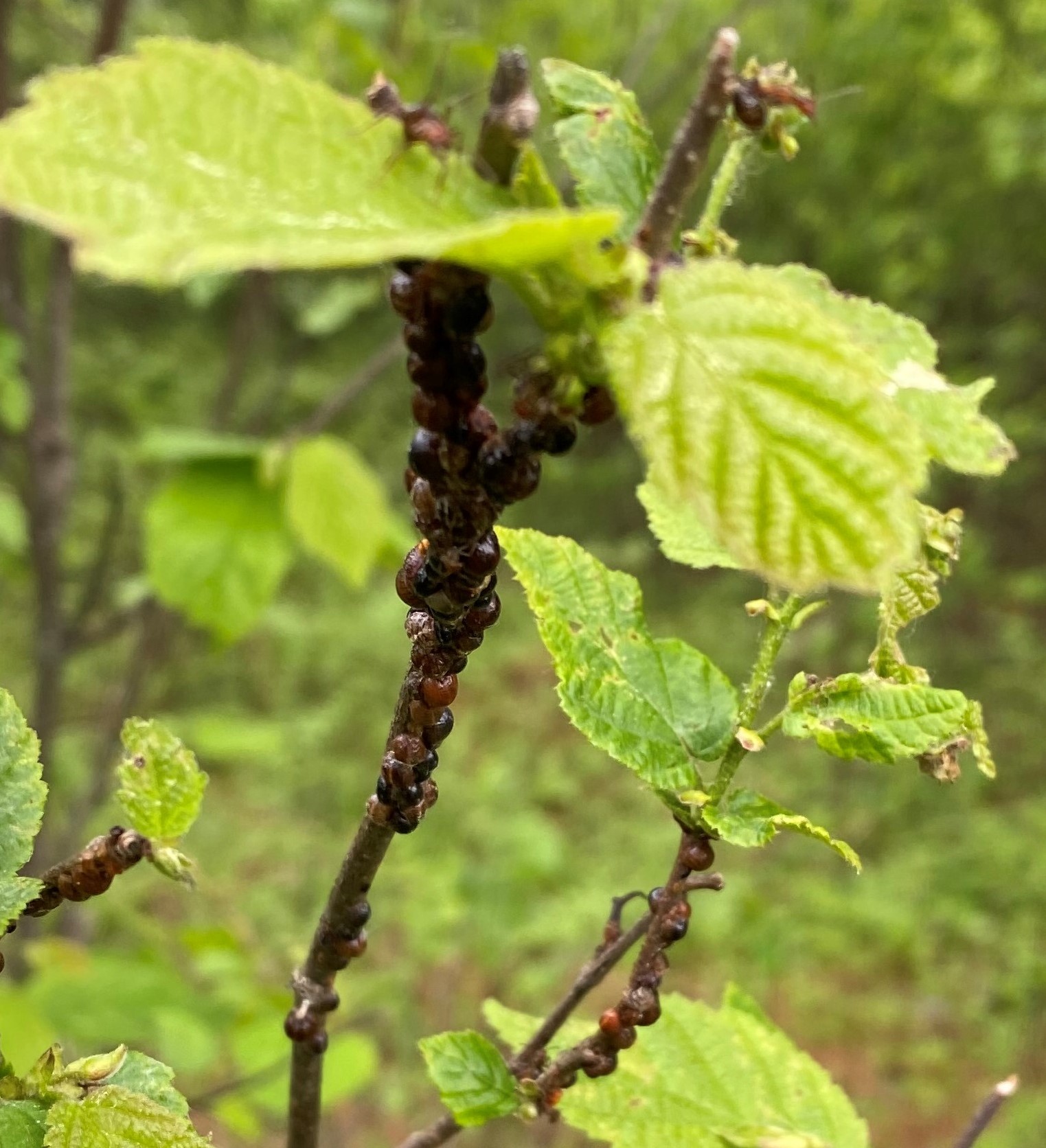By Linda Williams, DNR Forest Health Specialist, Woodruff, Linda.Williams@wisconsin.gov or 920-360-0665
Lecanium scale is popping up in a few areas of Oneida and Vilas counties. These scale insects insert their mouthparts into twigs and suck the sap of the tree. They release honeydew, which can be collected by ants or may coat leaves and anything located under infested trees (i.e., yard furniture or vehicles). Sooty mold can grow on that sticky material and turn things black, so homeowners may want to rinse off the honeydew from outdoor items on a regular basis.
Lecanium scale can be a problem in Wisconsin. Most recently in 2015 and 2016, very high populations were widespread in northeastern and north central counties. This caused some lower branch mortality in several areas.
In 2016, scale samples were identified as European fruit lecanium (Parthenolecanium corni). Although this pest had been previously identified in Wisconsin in the early 1900s, it didn’t cause any widescale forest damage until 2015. Lecanium scale responds well to heat, so if our summer is hot and dry, we could potentially see high populations next year as well.
Control in forests is usually left to nature. Ladybug larvae and other predators, as well as tiny parasitic wasps (1mm in size) and fungal diseases, will attack the scales and help knock back the population.
Yard trees can be sprayed to control the scale. It’s best to spray when the crawlers are out moving around, which is usually mid- to late-June, into July. Systemic insecticides, which are taken up by the tree and work for the whole growing season, would work as well and can be applied in fall or spring to treat the scales. Follow label directions, as some oils for scale control can burn foliage if applied at the wrong time. Homeowners that don’t want to spray to control the scale may still want to rinse off the honeydew and sooty mold from outdoor items on a regular basis.

